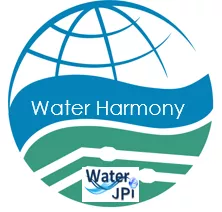Water Harmony
Closing the Water Cycle Gap – Sustainable Management of Water Resources

Partners
Partners
IVL Swedish Environmental Research Institute
University of Warmia and Mazury in Olsztyn (UWM)
Deltares
ACSA
Technical University of Iasi
Ben Gurion University
University Technology Sydney
Qingdao University of Technology
MARCOR
Michigan State University (MSU)
National University of Singapore (NUS)
Abstract:
Abstract:
The Water Harmony project closes the gap between the demand and supply in water, related to quality, quantity, circularity, reusability, human safety and economic feasibility. The project demonstrates sound and adaptive approaches to modern water management concepts that use BigData and other technological advancements to address challenges related to global environmental and societal changes; validation of innovative technologies that enable safer, secure and economically more feasible use and reuse of water, alongside addressing challenges with emerging pollutants. With joint and harmonised efforts, bringing 12 partners from 10 countries together, the project intends to increase public engagement to sustainably address the water challenges that connect sciences and society by using modern, harmonised and shared approaches. It also aims to facilitate policy decisions favouring actions that intensify efforts to close the demand-supply gap in the water sector by providing scientific backgrounds and social mobilisation of policy makers. This three-year project is a collaboration between Norway, Sweden, Netherlands, Israel, Spain, Poland and Romania together with self-financing partners from USA, Australia, Singapore and China. The partners bring a plethora of experience in various aspects of water management, treatment and reuse, which will translate to knowledge shared and invested in new approaches and through innovative development and concepts that become beneficial for Europe and beyond.
Project structure:
Project structure:
WP1 – Harmonisation of management concepts
WP2 – Harmonisation of technological concepts
WP3 – Harmonisation of Digital integration
WP4 – Harmonisation of Open Innovation
WP5 – Governance for Harmony
WP6 – Harmonised exploitation and dissemination
Outcomes and expected impact:
Outcomes and expected impact:
- Improved use of scarce human and financial resources in the area of water research and innovation by sharing knowledge, building
competences, rational utilisation of scare finances and facilitating increased funding; - Reduced fragmentation of water R&I efforts across Europe and beyond by bringing research environments together to consolidate best
practices, share knowledge and develop harmonised actions to achieve objectives; - Enhanced synergy, coordination and coherence between national and EU funding in relevant research fields through transnational
collaboration, by extending R&D&I activities from completed/ongoing R&D&I projects; - Improved implementation of research and innovation programmes in these fields through exchange of good practices, which is a key
objective reflected in all WPs of the project through 6 joint project meetings; - Increased student mobility between the partners (>30 visits among partners) and >10 co-supervision of master and PhD students, which
will be mainly funded from other sources (National funding, Erasmus+, etc.) - At least 6 pilot plants and prototypes and 4 patent applications
- At least 10 research papers with more than one partner from the consortium
- Strengthened international leadership of European R&I makes the Water JPI, in collaboration with the EC, a privileged and attractive
partner for global cooperation: Participation of 4 self-funding international partners; - Contribution to the implementation of the objectives of the JPI on Water - sharing knowledge, promoting innovation, public-private
partnerships, increased stakeholder ownership and governance with transparency; - Contribution to the implementation of SDG 6, SDG 13 and other EU/UNECE/WHO tools related to water;
- Protecting humans against known and unknown health risks (emerging pollutants with unknown impacts);
- Supporting better water allocation and water use control measures using modelling tools;
- Sharing of knowledge, data and harmonised actions, prompting interoperability;
- Maintaining water quality and quantity with physical and cyber security of water infrastructure and services.